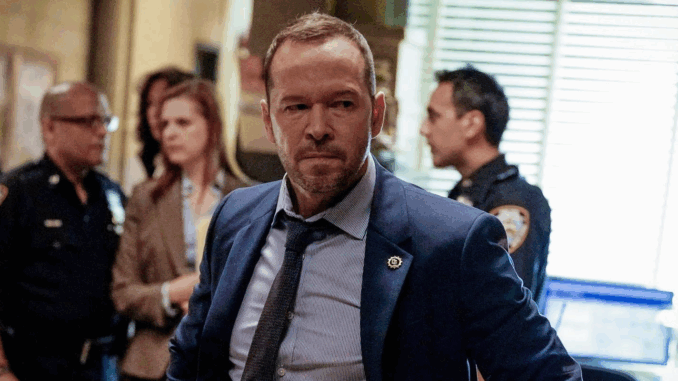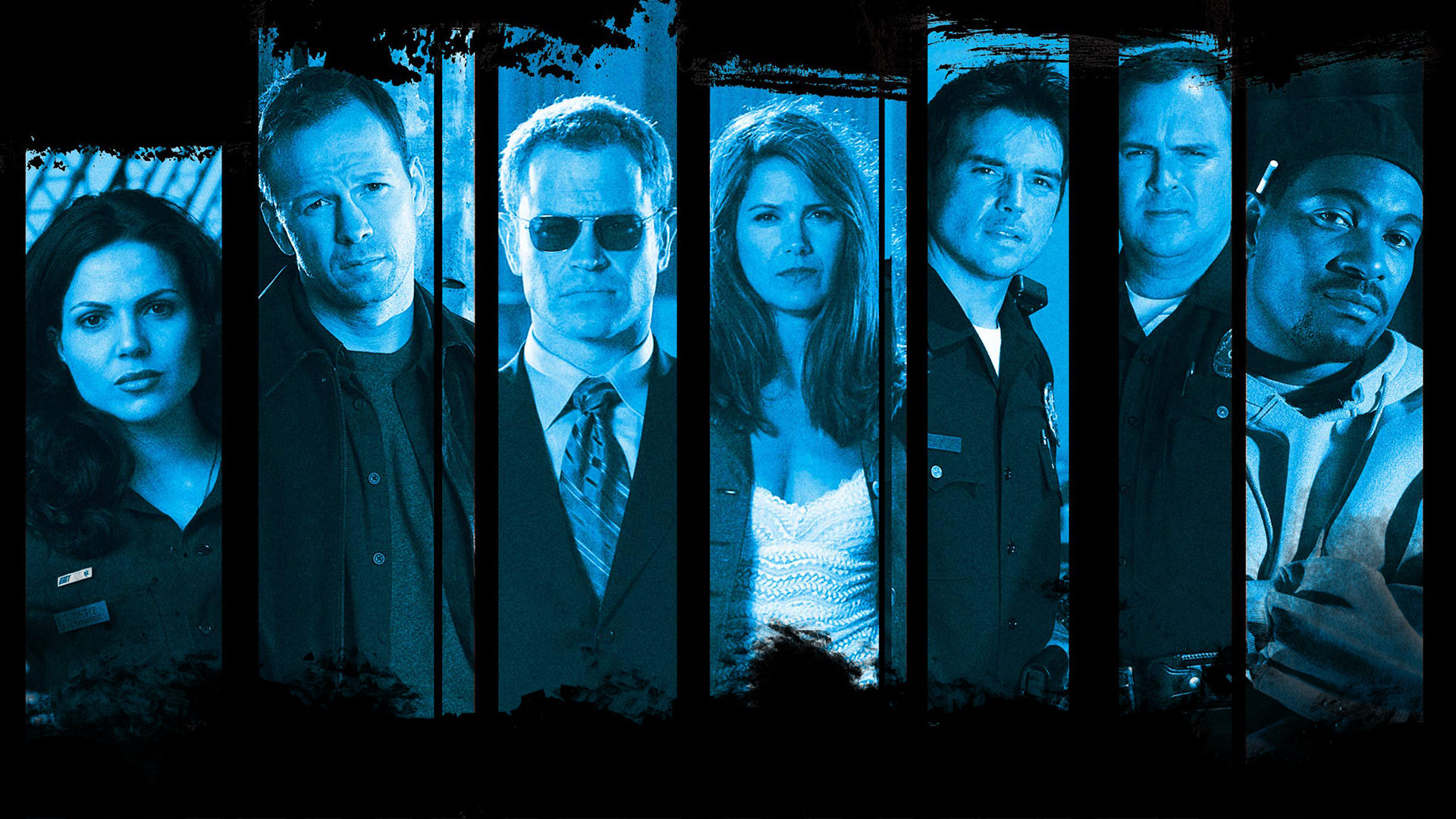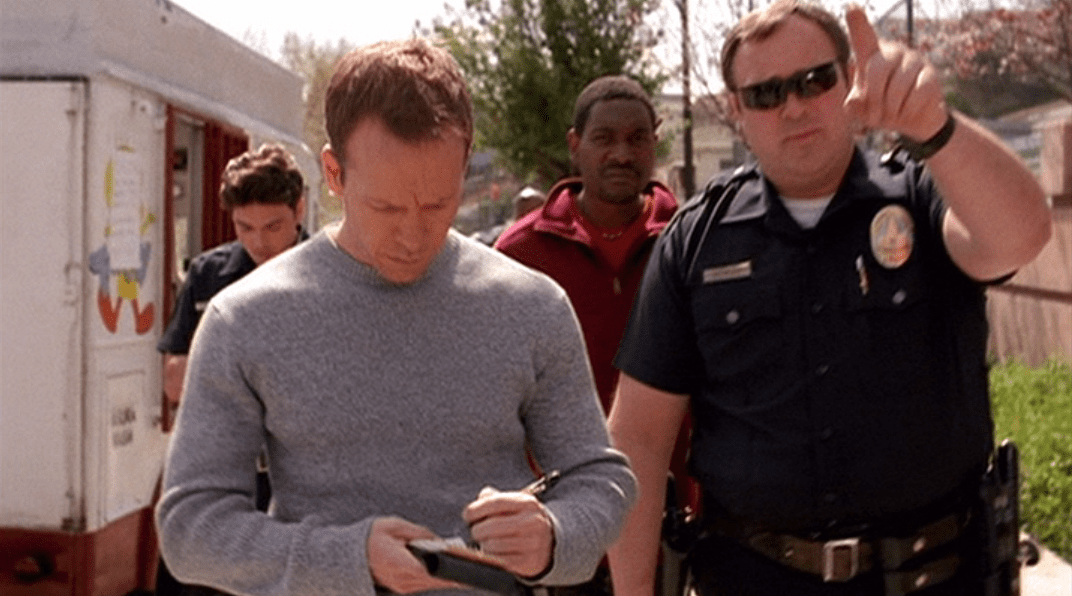
Donnie Wahlberg’s portrayal of Danny Reagan on Blue Bloods earned the entertainer his own spin-off series, but most people have forgotten his underrated performance as Joel Stevens in a short-lived police procedural television series, Boomtown. While Donnie and Mark Wahlberg are best known for their steady acting careers, boyband enthusiasts know that the brothers were two founding members of New Kids on the Block (the group reunited in 2008 after an almost-15-year hiatus, although Mark quit NKOTB early on and never rejoined). The Wahlbergs are everywhere, and when they aren’t acting or singing, they’re managing the successful (and delicious) burger franchise Wahlburgers, founded in 2014.
As an actor, Wahlberg found critical acclaim with his performance in Blue Bloods, which premiered in 2010 and concluded after 14 seasons this past December. Wahlberg’s character, a NYC police detective, was developed and portrayed as the son of Commissioner Frank Reagan (Tom Selleck); as an influential and reputable family, Blue Bloods followed the Reagan family’s personal and professional lives. While Selleck was the star of Blue Bloods, it was Wahlberg’s character that was given a spin-off, Boston Blue, which is expected to premiere this fall. Before Wahlberg shot to fame (on top of his already impressive resume) with Blue Bloods, however, he headlined a largely forgotten NBC show.
Boomtown’s Premise Was Intriguing
Danny Reagan, played by actor Donnie Wahlberg, wearing a suit speaking to a witness in Blue BloodsImage via CBS
Boomtown didn’t reinvent the wheel in the early 2000s, but the series’ main focus was still a point of interest. The short-lived NBC police procedural focused on a different criminal investigation each episode, although it featured the same recurring cast. Most investigations were murder-related throughout the show’s two seasons, although occasional break-ins and hostage situations also took center stage; drug operations, death row inmates, and kidnappers were also featured on Boomtown.
While the premise was relatively straightforward, Boomtown had a few creative decisions that set the series apart from others at the time. One investigation per episode aside, what made Boomtown an interesting police procedural was that the investigations were explored from multiple points of view. Police procedurals and similar crime dramas may widely differ plot-wise, but almost always follow the same structure: one major criminal investigation supersedes the minor B-plots, led by one (maximum, maybe three) protagonists who almost always have some sort of trauma in their backstory. Boomtown rejected tradition and embraced individuality, however. Each investigation wasn’t just explored through the eyes of different characters (detectives, lawyers, reporters, paramedics, etc.), but the series also invoked non-linear storytelling to craft each mini-narrative.
Boomtown’s main cast delivered an overall solid ensemble performance, but it was Donnie Wahlberg’s portrayal of Los Angeles Detective Joel Stevens that ultimately hyped the short-lived show. While the NBC police procedural focused heavily on the criminal investigations in its first season, Stevens emerged as a complex character who, like Wahlberg’s eventual Blue Bloods character, arguably could’ve headlined a spin-off series. On the outside, Stevens had an almost-perfect life, but in reality, Stevens’s personal life was marred by trauma and marital problems. Wahlberg successfully balanced his character’s personal and professional personas throughout Boomtown, which ultimately resulted in a powerful performance.

The rest of Boomtown’s cast was impressive, as well; the main cast consisted of David McNorris, the Los Angeles Assistant District Attorney (Neal McDonough), Bobby “Fearless” Smith, another detective (Mykelti Williamson), police officer Ray Hechler (Gary Basaraba), reporter Andrea Little (Nina Garbiras), parademic-turned-officer Teresa Ortiz (Lana Parrilla), and police officer Tom Turcotte (Jason Gedrick). Megan Ward portrayed Stevens’s wife, Kelly, while Vanessa L. Williams briefly appeared as detective Katherine Pierce, among other supporting characters. Plot-driven instead of character-driven for its first season, each Boomtown actor sold the action-packed high stakes of each investigation, greatly.
Boomtown’s Initial Reception Was Positive
Boomtown may have been lost to time, but in 2002, the NBC series initially got off on the right foot. At the time, critics and viewers at home praised the show’s innovative take on police work, the ensemble cast, and the gritty dialogue, which was considered to be authentic to the narrative and bumped the show into more of a realistic light. Wahlberg and Williamson were considered the breakout stars of Boomtown (an opinion that still holds up today), and Yost’s creation was praised for its originality, with many looking forward to another season. As of July 2025, Boomtown has retained its positive reception; the series has an 8.1/10 score on IMDb, an 89/100 on Metacritic, and a 96% on Rotten Tomatoes.
Boomtown Suffered From Low Viewership
Boomtown (2002)Image via NBC

Boomtown found itself in an interesting predicament when it aired on NBC. On paper, the series was a hit: Yost’s creation was praised, viewers at home were anxious for more, the plot was ahead of its time, and the characters were solid. Despite how successful the show appeared, though, Boomtown had one major problem: it brought in viewers, but other NBC shows had more, especially as time went on. The first couple of Boomtown episodes captivated a little over 10 million viewers and kicked off the series on a strong note.
The high was temporary, however: Boomtown’s viewership quickly began to decline, and although the drop rate was not enormous, it was certainly noticeable. For the 2002-2003 season, for reference, NBC’s top shows were Friends, with an average of 13.9 million viewers, ER, with an average of 13.1 million, Law & Order, with an average of 11.7 million, and Scrubs, with an average of 10.3 million. Boomtown was well-crafted, but never cracked the list of NBC’s biggest shows for its first or second seasons.
Why did Boomtown have an issue maintaining viewers if the series was well-praised? It’s hard to pinpoint an exact reason, although 20-something years later, there are several small reasons in retrospect. In the early 2000s, dramas like The Sopranos (1999-2007) and Six Feet Under (2001-2004) dominated network television. These types of shows featured compelling characters and even more complex plotlines, but the overall story arcs were linear, easy to follow, and showcased over many episodes until each series had its respective explosive finale. Boomtown didn’t follow this formula, and while Yost’s police procedural was outside the norm, it was ultimately ahead of its time. Stiff competition aside, Boomtown’s marketing was fine, but it appeared not to have reached its targeted audience like NBC expected. If the series were released today through a streaming service instead of on television, one could argue that the show’s competition would be stiffer, but Boomtown would attract a larger audience.
NBC Canceled Boomtown After Two Seasons
The cast of the 2002 show Boomtown posing for a cast picture
NBC canceled Boomtown after just two seasons, but it was the network’s response to the program’s declining viewership that became the final nail in the police procedural’s coffin. NBC tried to save Boomtown by reinventing the series, but took everything about what made the series special and changed it for the worse. After Boomtown’s first season, the production team wrote out some characters and reintroduced new ones, such as Williams’s Pierce and Rachel Durrel (Kelly Hu); Andrea, Marian McNorris (Kelly Rowan), Ben Fisher (Erich Anderson), and Daniel Ramos (Rick Gomez) were characters that did not return for Season 2. Most importantly (and dramatically), Boomtown abandoned its original premise of non-linear criminal investigations and instead shifted its focus primarily to the police employees in a linear format, which immediately made a negative impression on fans who enjoyed Season 1’s uniqueness.
Boomtown ended prematurely after NBC made the wrong call, but the short-lived series was a blessing in disguise for the cast, as everyone’s careers ultimately advanced over time. Wahlberg’s acclaim as Danny Reagan in Blue Bloods aside, McDonough went on to star in many prolific television shows after Boomtown as well, such as Desperate Housewives (2004-2012), Suits (2014-2019), Legends of Tomorrow (2016-2022), and more recently, Tulsa King (2022-Present) created by Yellowstone’s Taylor Sheridan. Williamson went on to star as Gabriel Maxson in Denzel Washington’s film adaptation of Fences (2016); Basaraba, on the other hand, has collaborated with Martin Scorsese on three films, two after Boomtown: The Last Temptation of Christ (1988), The Irishman (2019), and Killers of the Flower Moon (2023). Parrilla starred as Regina Mills/Evil Queen/Roni in Once Upon a Time (2011-2018) as well, a fantasy television series that successfully ran for seven seasons on ABC. The list of accolades and resumes could go on and on, but in the end, it’s clear that Wahlberg and his Boomtown co-stars all thrived, despite the show’s opposite.
